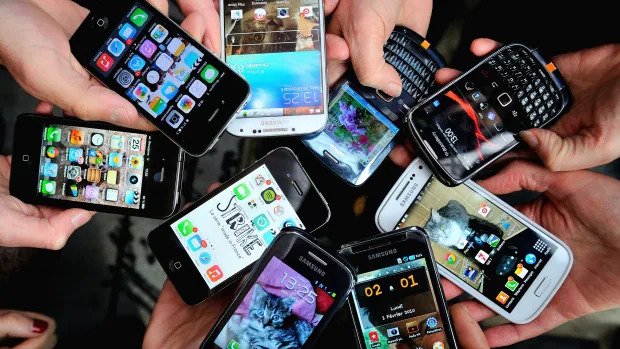Student-Teacher Phone Debate
May 3, 2023
The rapid progression of phones is no secret, nor is impact on educational institutions. Most kids would rather learn the information for class off of TikTok (which has a 50-50% chance of being correct) than put their phones down and listen to the material being taught to them. Many teachers have come up with a list of rules to put a stop to unnecessary phone usage and redirect their students’ attention back to the classroom, but it has not been met with as much grace as, say, the list of rules while using a school computer.
Many students tend to believe that teachers restrict their phone time because they dislike technology, and most teachers would assume that students using their phones in class are being blatantly disrespectful. But, that’s not always the case. Some students see the necessity of phone policies, and some teachers understand where to draw the line instead of just groundlessly punishing a whole class.
When asked what his personal policy on phones in his classroom are, Mr. Vas responded simply, “They’re not a problem as long as it’s not a distraction.” He believes that when it comes to things like checking time, or maybe responding to a text from your mom, are not a huge issue to him. “On the other end of that is playing video games, watching Netflix; that’s the problem, that’s the main issue.” His aversion to class distraction is shared through both teachers and students. Maria Francisco, senior at DHS, understands why a teacher would have a phone policy, as she has been affected by the lack thereof directly. “I’ve experienced as a student, if I’m working in a group with maybe two friends, they’ll be on their phones the whole time and I’m the one working on the project.” If you’ve ever bore the burden of creating a whole project for a group, even just yourself and one other person, you know how annoying, frustrating, and stressful it can feel.
Some teachers, such as Señora Gonzalez, have more strict, direct rules when it comes to phones in the classroom. “They’re a distraction. Multitasking (class/phone content) inherently disallows full concentration, full attention, optimal learning.” While Mrs. Gonzalez is someone who allows cell phone usage when needed for a lesson, “Only if it is in service to the lesson/task”, she’s not keen on it for any other reason when in her classroom. She’s not quite sure if there’s a solution to this problem, but she does feel that the impact of phones outside of the classroom has been wonderful. “I especially love the safety aspect of going out and being able to contact help.”
Teachers like Ms. Stankiewicz, have policies that offer second chances. “I ask my students to put their phones away, in their bags, at the beginning of class,” she started. “If I see your phone once, I ask them to put it back in their bag, and if I see it a second time, they either put their phone on my desk or take a detention, their choice.” Policies such as Ms. Stank’s allow room for trust to build between herself and her students. It establishes that she respects her students, and she expects they respect her as well, and in turn things like short phone breaks or a slice of time to talk with friends before returning to classwork.
It’s clear that many people have many different opinions on cell phones, how they should be used in classrooms, and how they affect both students and teachers today. Not many concrete solutions to this issue were given when people were asked what ideas they had. Zoë Newbold, a senior at DHS, thinks it’s an issue you have to solve with yourself. “I think that some students need to fix their phone addictions and some teachers need to let up a little bit.” She expressed that she’s aware some kids cannot focus on anything without their phone close by, or even in front of their face. “But it’s still disrespectful to teachers, I think,” she countered immediately after. “Someone’s speaking to you, it’s rude to ignore them with your phone in your face, just put it down.”
Ultimately, there is no one model way for teachers to set their phone policies. At the end of the day it’s their decision to make, and students should respect the rules while in their classroom. However, it’s evident students do not listen, probably don’t even bother to realize there is a phone policy to begin with. This battle between phone and teachers, or kids and teachers, represents the generational ripple that separates all of us from one another. It’s not something to be ashamed of as a society, but it is something we must observe and take accountability for, and actively strive to rectify, even some people think it’ll all be futile in the end.





















